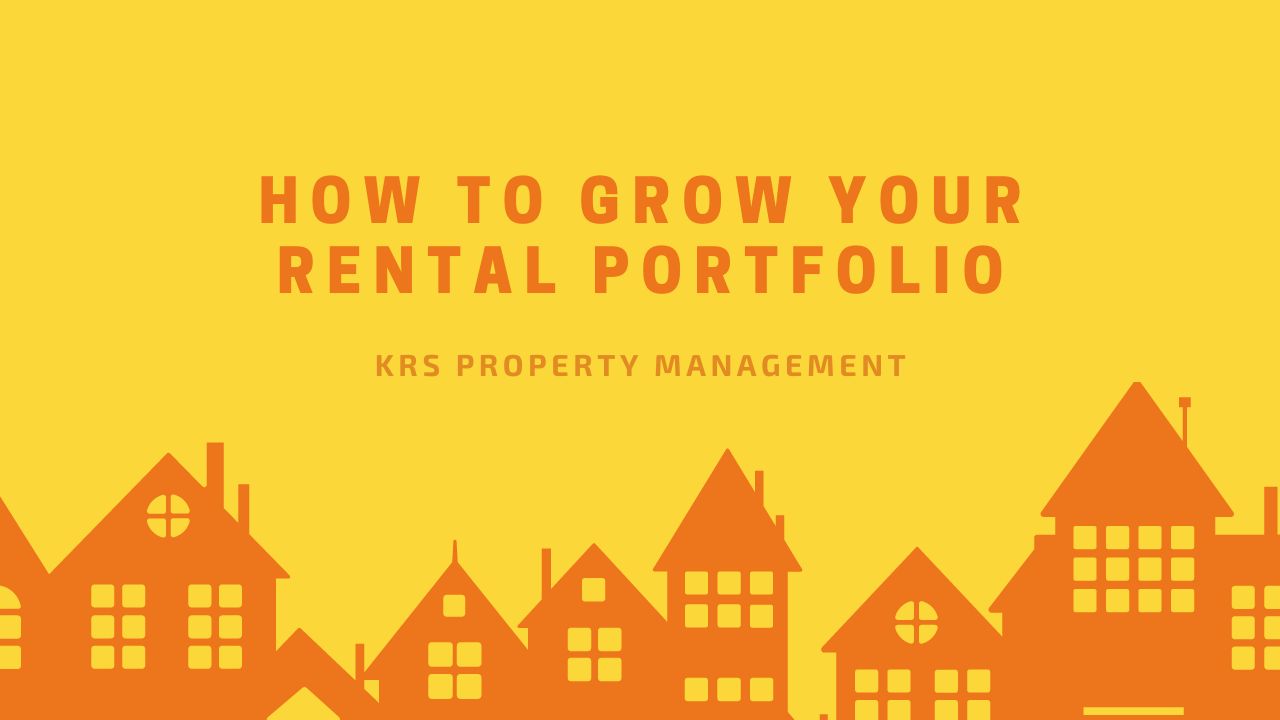
Investing in real estate can be a great way to grow your wealth and equity over the long term. Moreover, by investing in rental properties, you can also earn a steady passive income each month.
Thank said, owning just one rental property typically doesn't provide enough income to live off. Most of your rental income will go towards covering necessary expenses such as mortgage payments, property taxes, maintenance, insurance, and potential vacancies, leaving you with only a small profit margin. Additionally, relying on a single property can be incredibly risky, as you never know when unexpected repairs or prolonged vacancies will arise.
Investing or selling multiple properties minimizes risks and increases the chances of a consistent income. Growing your portfolio will provide you with more financial stability and growth opportunities, enhancing your overall earnings. In this article, the experts at KRS Property Management will go over the best ways to grow your rental portfolio efficiently.
Benefits of Growing Your Rental Portfolio
If you want to increase your rental income and ensure a better return on your investments, you should consider expanding your portfolio. Other key benefits of scaling up your portfolio include the following:
- Increased Income: Owning multiple properties generates more rental income, which can significantly boost your cash flow.
- Diversification: Investing in various types of properties across different locations helps you minimize risks. If one property underperforms or faces vacancies, the impact on your overall income will be significantly minimized.

- Economies of Scale: Managing multiple properties can lead to cost savings through bulk purchasing and better deals with contractors and service providers.
- Equity Growth: More properties mean more opportunities for property value appreciation. As the value of your properties increases over time, so will your equity, which can be leveraged for future investments or financial needs.
- Tax Advantages: As a real estate investor, you can benefit from various tax deductions, such as mortgage interest, property taxes, insurance premiums, and maintenance expenses.
- Retirement Security: A diversified and sizeable rental portfolio will provide you with a steady income stream, ensuring financial security without relying solely on savings or pensions.
- Wealth Building: The combination of rental income, property appreciation, and tax benefits creates a robust strategy for accumulating and preserving your wealth in the long term.
Tips for Growing Your Rental Portfolio Successfully
Expanding a rental portfolio successfully requires ample planning and careful consideration. Here are some tips to help you out:
Create an Investment Plan
The key to any successful investment is to have a strategy in place. Buying a property without a plan can lead you to overspending and making rush decisions. That’s why you must sit down and create an investment plan that will help you reach your long-term goals.
Your plan should outline things such as your strategies, objectives, budget, and financing options. This will help you determine what kind of properties to invest in and what type of financing you’ll need, as well as provide a blueprint for future investments.

Research the Local Real Estate Market
Location is one of the most crucial factors investors should consider when purchasing real estate. After all, not all markets offer the same profits or have the same demand. Researching the real estate market you’re planning to invest in is crucial for making informed decisions.
A good market research should include the following things:
- Analysis of Economic Indicators: Economic factors such as employment rates, population growth, and median household income often indicate the strength of a real estate market.
- Market Trends: Consistent growth in these areas suggests a healthy market. Examine trends in property prices, rental rates, and inventory levels.
- Neighborhood Evaluations: Focus on specific neighborhoods, assessing their safety, amenities, school quality, and potential for future development.
- Understanding of Local Regulations: Research zoning laws, property taxes, and rental regulations. These can significantly impact your investment's profitability.
- Real Estate Reports: Market reports from reputable sources can provide deeper insight into the local market.
- In-Person Visits: On-the-ground research provides valuable context of the rental market and allows you to engage with the locals about what it’s like to live there.
- Rental Rates Analysis: Analyzing rental rates can help you determine your potential ROI and set competitive rates for your property.
- Vacancy Rates Assessment: By evaluating vacancy rates in the area you want to invest in, you’ll be able to determine whether it’s fit for rental investments.

Assess Your Risk Tolerance
Evaluating your risk tolerance is crucial when investing in real estate. Before you start browsing for properties for sale, you should determine how big of a risk you’re willing to take. For instance, investing in a single-family home in a newly developed area can be a big risk, as you don’t know whether the area will appreciate or improve over time. If you’d rather play it safe, you’d be better off investing in a more traditional neighborhood.
Partner with a Property Manager
Networking with local experts, such as real estate agents and other investors can provide you with firsthand insights into the market. Moreover, by partnering with a seasoned property management company, you’ll also get access to many resources to help your rental investments succeed. Property managers can help you with anything from finding the perfect property to grow your portfolio to managing the day-to-day operations of your rentals.
Bottom Line
Growing your rental portfolio will help you enhance your income, minimize risks, and achieve long-term financial stability. Moreover, a larger portfolio provides better economies of scale, tax benefits, and wealth-building opportunities, ensuring a more secure and prosperous future in real estate investment. With the tips outlined above, you’ll be better prepared to expand your rental business!
Do you need help expanding your real estate portfolio? Contact KRS Property Management! Our team will help you find and manage the perfect property for your long-term investment goals.






